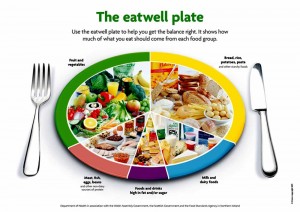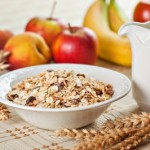Nutrition
Eating healthily and maintaining a balanced diet is important no matter what kind of lifestyle you lead. You may have noticed an increase in healthy eating and activity initiatives by the government and other organisations in recent months and this is because over the last eight years, obesity has risen by 11% in men and 10% in women; and only 34% of men and 39% of women have a healthy body mass index of between 18.5 and 25.
Educating yourself in the correct nutritional needs for your body will help you understand how to improve your diet. No single food contains all the nutrients that our bodies need to function properly; therefore it is essential to eat a variety of different foods, in different proportions, to maintain a healthy diet and a healthy body. All foods are generally thought of as belonging to one of five possible groups:
- bread, rice, potatoes and pasta
- fruit and vegetables
- milk and dairy product
- meat, fish, eggs, beans and other non-dairy protein sources in fat or sugar.

Approximately one third of your diet should be made up of foods such as rice, potatoes and other starchy carbohydrates. These are an important source of energy and essential fibre, which is needed to aid digestion and prevent constipation, as well as some iron, calcium, B vitamins and folate that are all required for healthy bodies. When possible, try to eat wholegrain or wholemeal varieties of these foods and avoid excess fat through frying.
Fruit and vegetables should also make up a third of your diet. Fresh, frozen or dried, you should try to eat at least five portions of fruit and vegetables every day, with as much variety as possible. Fruit and vegetables are our main source of vitamin C, which is needed for healthy skin and body tissues and the absorption of iron, as well as beta-carotene, fibre and carbohydrates.
The remaining third of your diet should be mostly milk and dairy products with eggs and non-dairy protein sources and only a limited amount of foods that are high in fat. Dairy products contain a range of vitamins and nutrients, but it is our primary source of calcium which is essential for the development and growth of healthy bones. However, dairy products can contain high amounts of saturated fat so you should not eat excessive amounts and always try to choose low-fat varieties, such as skimmed milk.
Protein is an essential part of our diet needed for growth and repair, as well as energy. There is some protein in dairy products but the key sources of protein include meat such as chicken or steak and a variety of fish, including frozen or smoked fish and even fish fingers and fish cakes. Other sources of protein can also be nuts and tofu, as well as beans and pulses such as kidney beans or chick peas, and they also count towards your five a day.
The higher level of foods high in fat and sugar in most people’s diets are thought to be a contributing factor to the rise in obesity levels. Foods such as butter, cream, cooking oil, mayonnaise, chocolate and pastries are all high in fat; sugar levels are high in foods like sweets, soft drinks, jam, cakes and biscuits. It is essential to have a small amount of fat in our diets but it is not good for our bodies to consume excess amounts, increasing our calorie intake and weight gain. Instead try to limit the amount of fat used in cooking, using the unsaturated variety, and try eating fruit when you have a craving for something sweet.














